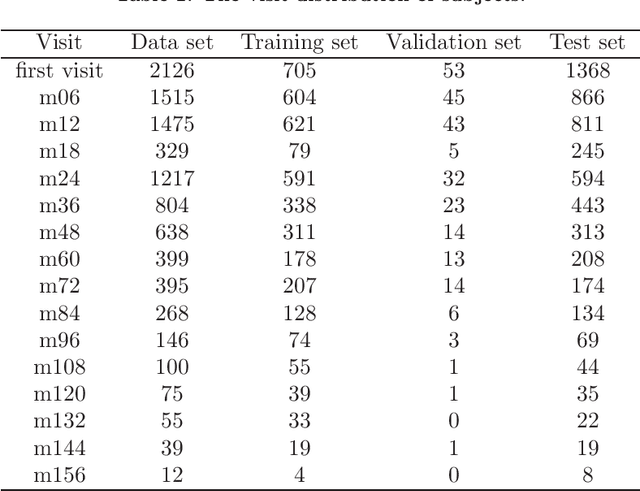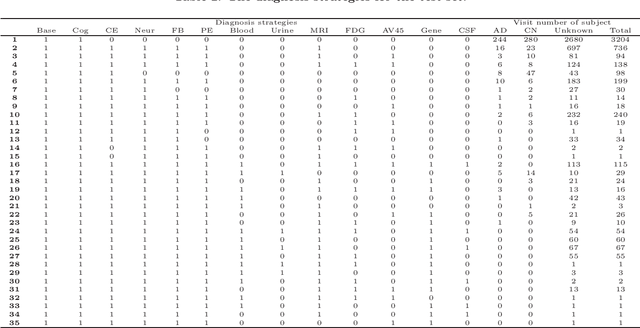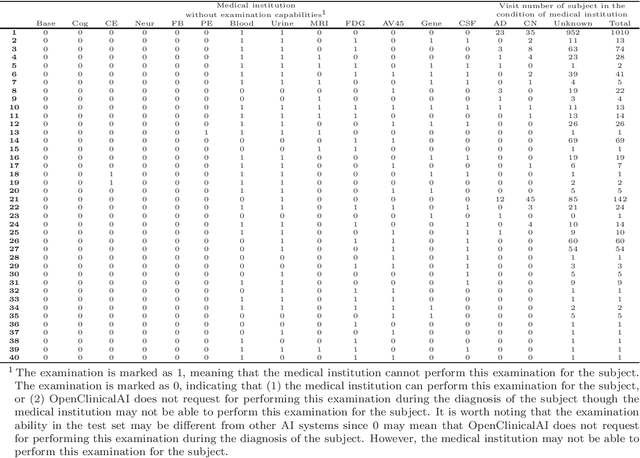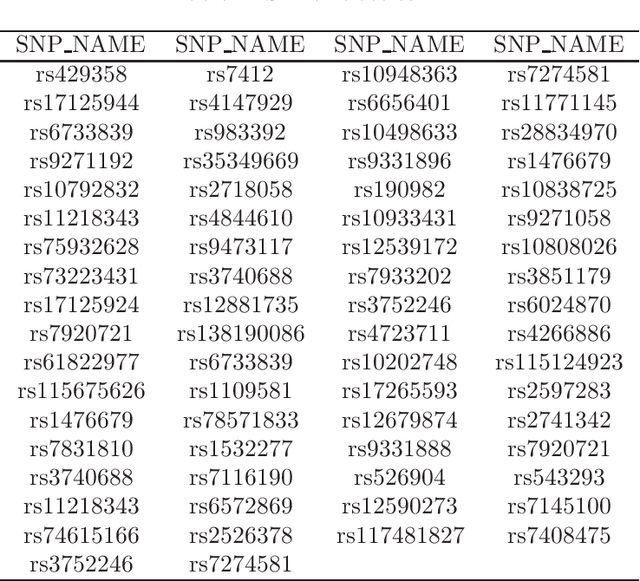Guoxin Kang
OpenClinicalAI: An Open and Dynamic Model for Alzheimer's Disease Diagnosis
Jul 03, 2023



Abstract:Although Alzheimer's disease (AD) cannot be reversed or cured, timely diagnosis can significantly reduce the burden of treatment and care. Current research on AD diagnosis models usually regards the diagnosis task as a typical classification task with two primary assumptions: 1) All target categories are known a priori; 2) The diagnostic strategy for each patient is consistent, that is, the number and type of model input data for each patient are the same. However, real-world clinical settings are open, with complexity and uncertainty in terms of both subjects and the resources of the medical institutions. This means that diagnostic models may encounter unseen disease categories and need to dynamically develop diagnostic strategies based on the subject's specific circumstances and available medical resources. Thus, the AD diagnosis task is tangled and coupled with the diagnosis strategy formulation. To promote the application of diagnostic systems in real-world clinical settings, we propose OpenClinicalAI for direct AD diagnosis in complex and uncertain clinical settings. This is the first powerful end-to-end model to dynamically formulate diagnostic strategies and provide diagnostic results based on the subject's conditions and available medical resources. OpenClinicalAI combines reciprocally coupled deep multiaction reinforcement learning (DMARL) for diagnostic strategy formulation and multicenter meta-learning (MCML) for open-set recognition. The experimental results show that OpenClinicalAI achieves better performance and fewer clinical examinations than the state-of-the-art model. Our method provides an opportunity to embed the AD diagnostic system into the current health care system to cooperate with clinicians to improve current health care.
OpenClinicalAI: enabling AI to diagnose diseases in real-world clinical settings
Sep 09, 2021Abstract:This paper quantitatively reveals the state-of-the-art and state-of-the-practice AI systems only achieve acceptable performance on the stringent conditions that all categories of subjects are known, which we call closed clinical settings, but fail to work in real-world clinical settings. Compared to the diagnosis task in the closed setting, real-world clinical settings pose severe challenges, and we must treat them differently. We build a clinical AI benchmark named Clinical AIBench to set up real-world clinical settings to facilitate researches. We propose an open, dynamic machine learning framework and develop an AI system named OpenClinicalAI to diagnose diseases in real-world clinical settings. The first versions of Clinical AIBench and OpenClinicalAI target Alzheimer's disease. In the real-world clinical setting, OpenClinicalAI significantly outperforms the state-of-the-art AI system. In addition, OpenClinicalAI develops personalized diagnosis strategies to avoid unnecessary testing and seamlessly collaborates with clinicians. It is promising to be embedded in the current medical systems to improve medical services.
 Add to Chrome
Add to Chrome Add to Firefox
Add to Firefox Add to Edge
Add to Edge